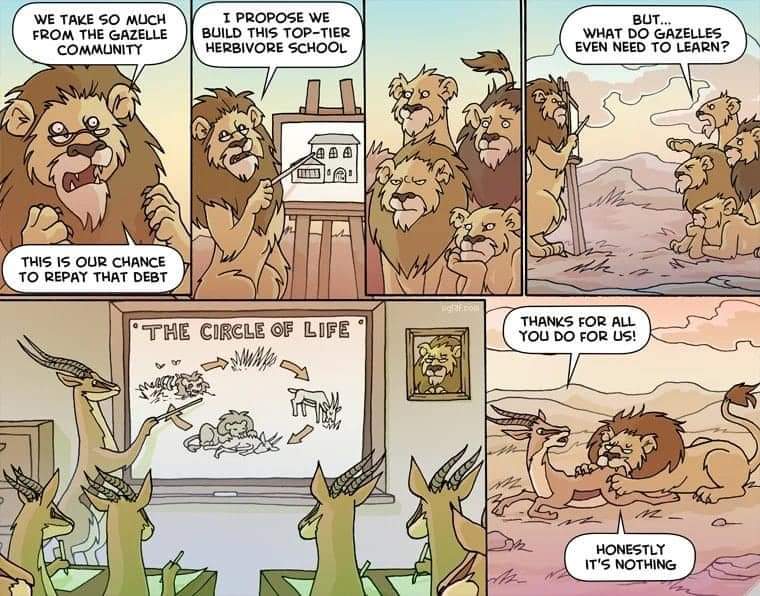this post was submitted on 25 Mar 2024
842 points (97.8% liked)
Comic Strips
12960 readers
2399 users here now
Comic Strips is a community for those who love comic stories.
The rules are simple:
- The post can be a single image, an image gallery, or a link to a specific comic hosted on another site (the author's website, for instance).
- The comic must be a complete story.
- If it is an external link, it must be to a specific story, not to the root of the site.
- You may post comics from others or your own.
- If you are posting a comic of your own, a maximum of one per week is allowed (I know, your comics are great, but this rule helps avoid spam).
- The comic can be in any language, but if it's not in English, OP must include an English translation in the post's 'body' field (note: you don't need to select a specific language when posting a comic).
- Politeness.
- Adult content is not allowed. This community aims to be fun for people of all ages.
Web of links
- [email protected]: "I use Arch btw"
- [email protected]: memes (you don't say!)
founded 2 years ago
MODERATORS
you are viewing a single comment's thread
view the rest of the comments
view the rest of the comments

Electricity providers are a special case because they are a (government-enforced) monopoly.
Water providers have an incentive not to follow the other ones when they raise prices, because they can make more profit, when others raise their prices, by raising their own less so, or not at all, than they would make by raising their prices to match the competition’s prices.
If one starts charging $10/gallon while the others stay at $1/gallon, he loses all his business. That’s called an “incentive structure” and while it doesn’t force them to keep low prices the same way a gun to their head would, but it does do so effectively, by making that the optimum path to profit.
As it turns out, people are motivated to make more money, which is why markets work at all.
Yes what you said is true: IF everyone starts charging more for water, then people must pay more.
The reason that statement doesn’t matter is that the IF condition is never true in a free market. That’s exactly what free markets provide: the incentive structure from competitive pricing that regulates prices and keep price fixing from happening.